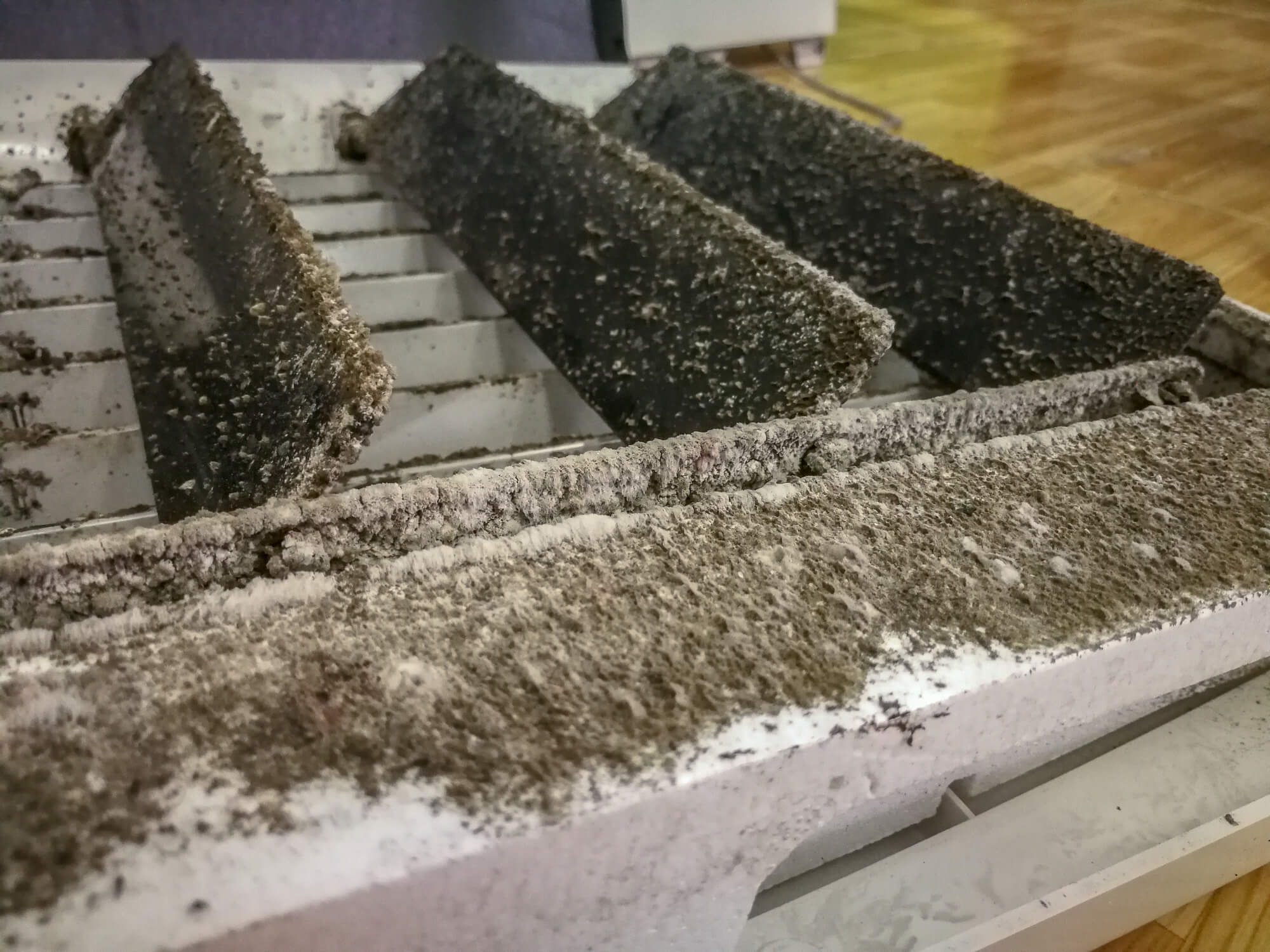Mold growth is never good news, especially when it’s hiding within the air ducts of your home. Mold spores in HVAC systems can cause health issues and make existing conditions like allergies and asthma worse. If you suspect mold or high moisture levels in your ducts, professional air duct cleaning is important to resolve the issue and prevent future mold growth.
Excess moisture is the main cause of mold in heating and air systems. When conditions are right, mold spores can proliferate and spread through the entire duct network. Wet or damp conditions occur in ducts for various reasons, such as:
- Leaks or damaged ductwork that allow water to seep in
- High indoor humidity due to lifestyle factors like showering and cooking
- Poor attic ventilation that traps moisture near duct insulation
Signs of Mold in Ductwork
Several clues can alert you to mold forming in your air ducts:
- Musty or earthy smells that come from vents, especially after the HVAC turns on
- Dampness or wet spots near ductwork
- Duct insulation that is wet, soft, or discolored
- Visible mold growth on the outside of ducts
- Health issues that surface or worsen like congestion, coughing, and eye irritation
Clean Up with Air Duct Cleaning
If any of these mold signs are present, professional air duct cleaning is the first line of defense. During the process:
- Mold and debris are vacuumed from the entire duct system, removing existing contaminants.
- Any damaged sections of ductwork repair to close leaks.
- Moisture-resistant coatings may be applied inside ducts as a barrier against future moisture buildup.
- HVAC components like coils and heat exchangers are thoroughly disinfected.
- Air filters often replace with higher MERV-rated filters that trap smaller particles.
Prevent Future Mold Growth
Beyond cleaning, tackling the moisture source is key to stopping mold from returning:
- Repair leaks, damaged ductwork, or deteriorated sealants.
- Increase attic ventilation to remove excess humidity.
- Install a dehumidifier to control indoor moisture levels.
- Consider a UV duct sanitizer to kill remaining mold spores and continuously disinfect the air between cleanings.
In summary, air duct cleaning is crucial for both resolving existing mold and preventing it from spreading further. But to fully eliminate moisture issues that fuel mold, locate and repair sources of excess humidity as well.

